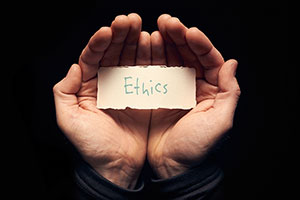In an ideal world, all the players in the legal system, including judges, lawyers, and expert witnesses, would behave professionally at all times. Professional behavior includes treating other professionals with civility.
In the real world, participants in the legal system do not always bring a professional demeanor to court. A lawyer who tried to intimidate an expert witness recently learned that unprofessional behavior has consequences.
Intimidating Comments
Rudy W. Gorrell, Jr. is an attorney in Louisiana. He represented Brienne Russ in separate custody cases against the fathers of her two children. Both fathers were represented by Terrance Prout.
Prout called the same pediatric psychologist to testify as an expert witness in each case. She appeared in court three times.
On the first occasion, Gorrell approached the expert in the courtroom before she testified. Gorrell told her: “I’m coming for you”; “You’re not needed here”; “You’re not going to get on the stand”; and “I’m going to make you sit here all day.”
Before the expert testified, the hearing was continued to a new date. The expert appeared again on that date. Before the hearing started, Gorrell approached her in the courthouse parking lot and said, “I’m not sure why you’re here” and “You’re not going to testify again today.” The expert explained that she was in court because she had been subpoenaed to appear. Gorrell then said, “Well, you can’t testify to the child’s anxiety, and I am going to get you.” He added, “I don’t know why you are coming up, because we don’t need you to come up here [to testify].”
The hearing was again continued. The expert returned for the third court date. As she was sitting next to one of Prout’s clients on a bench outside the courtroom, Gorrell approached her and said, “You better stop messing with me, I will get you.”
The expert was finally able to testify at the third hearing. However, she was intimidated by Gorrell’s remarks and at times felt physically afraid of him.
Gorrell’s Explanation
At his disciplinary hearing, Gorrell denied threatening the expert or telling her she didn’t need to be present. He claimed that he merely suggested she should be on call rather than sitting around waiting to testify.
Gorrell testified that he told the expert that he disagreed with the relevance of her opinions because they were based on anxiety the children had experienced two years earlier. Why Gorrell would deem it appropriate to discuss the relevance of testimony with the witness rather than opposing counsel or the court is unclear.
Gorrell suggested that Prout’s animosity toward him accounted for the expert’s accusations. He admitted, however, that he could not think of any reason why the expert would lie about him.
Discipline Imposed
The hearing committee that considered the ethics complaint resolved the conflicting testimony in the expert’s favor. The committee concluded that Gorrell’s comments to the expert “caused her to feel intimidated and had no substantial purpose other than to delay or burden her.”
While the expert felt intimated, the hearing committee noted that Gorrell’s conduct caused no actual harm because it neither delayed the proceedings nor influenced the expert’s testimony. The committee nevertheless recognized the potential for harm. Witness intimidation can discourage witnesses from giving truthful testimony.
Intimidation can also discourage professionals from providing expert testimony in future cases. Experts who suffer abuse may decide that providing expert testimony isn’t worth the trouble.
The Louisiana Supreme Court agreed with the hearing committee. The court noted that Gorrell had no prior discipline during a long career. It therefore agreed with the committee that a public reprimand was warranted as discipline for his unprofessional conduct.
The Need for Civility
Commentators have long bemoaned the loss of civility in the legal profession. Supreme Court Justice Neil Gorsuch has argued that the loss of professional civility reflects a larger “civility crisis” in society. In Justice Gorsuch’s words, the growing tendency to shout down and insult people with whom we disagree reflects a failure to embrace the American ideals of freedom and equality. Maintaining a free society requires “treating each other as equals — as persons, with the courtesy and respect each person deserves — even when we vigorously disagree.”
The Gorrell decision should remind lawyers that the duty to provide vigorous advocacy in the courtroom does not justify an attempt to discourage an expert witness from testifying. Lawyers who disagree with an expert witness can attempt to expose flaws in the expert’s opinions through cross-examination. Confronting and attempting to intimidate an expert witness outside the courtroom is never acceptable behavior.




